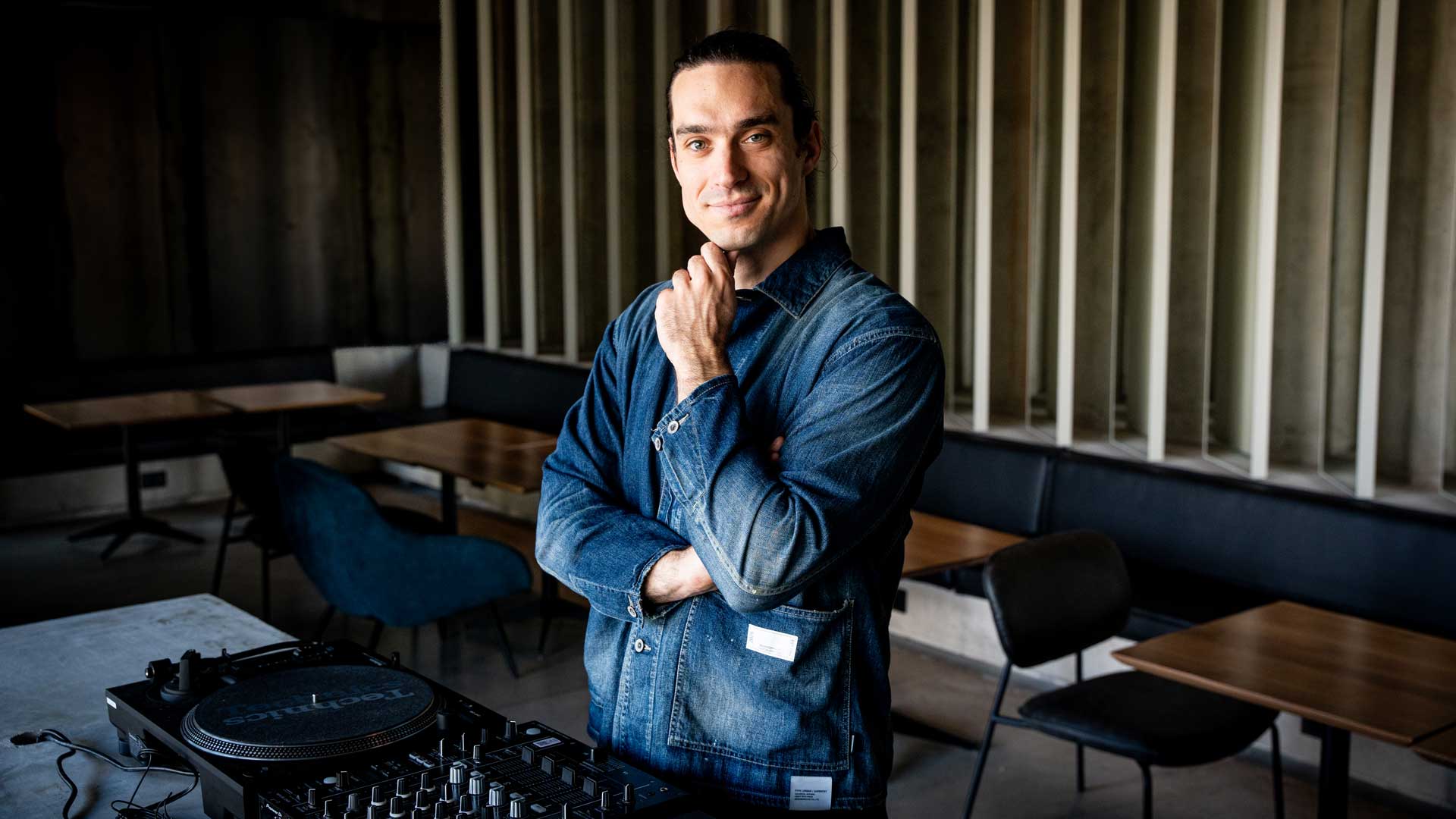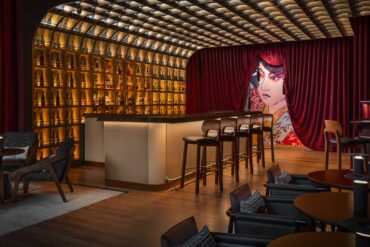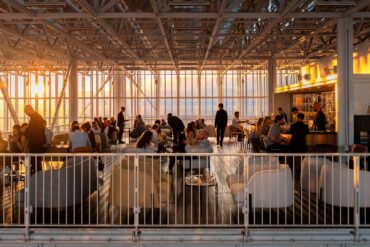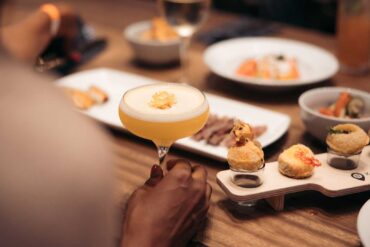In any venue, every detail shapes the experience: gestures, service, cocktails. Light directs the gaze, design builds atmosphere. And music often stays at the edge. It fills, accompanies, fades. Rarely is it listened to. At Lubna, Lorenzo Querci — already founder of Moebius — puts music at the heart of everything. It becomes part of the space’s living essence, a force that shapes rhythm, focus, intimacy.
From Lorenzo Querci’s Vision to the Birth of Lubna
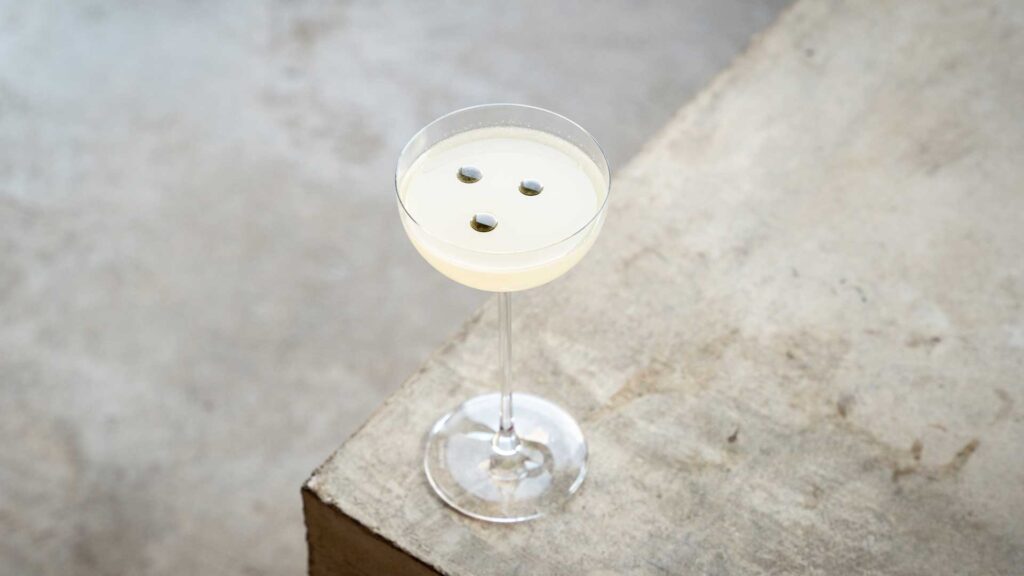
Lubna feels almost like a theatre with no stage: warm vinyl records spinning, dim lights, an art gallery, charcoal-grilled dishes and cocktails designed to flow alongside the night, never dominate it. “It’s a listening bar, but also a cultural space in its own right,” Querci explains. “Music is meant to be heard throughout the evening, with DJs taking turns during the week while guests order a drink or something from the grill.” Though Lubna is just a few months old, its roots reach back to 2018.
“That year, I was travelling in Japan when I walked into a tiny kissaten where a vinyl record was playing. The place was barely bigger than a box, but everything made sense. That moment pierced something in me.” What began as an impression slowly turned into a vision. “The idea formed over time, with travel, with keeping my eyes up and open. I’ve always been drawn to vinyl — there’s been a record shop inside Moebius since we opened in 2019.”
Music Takes Center Stage at Lubna
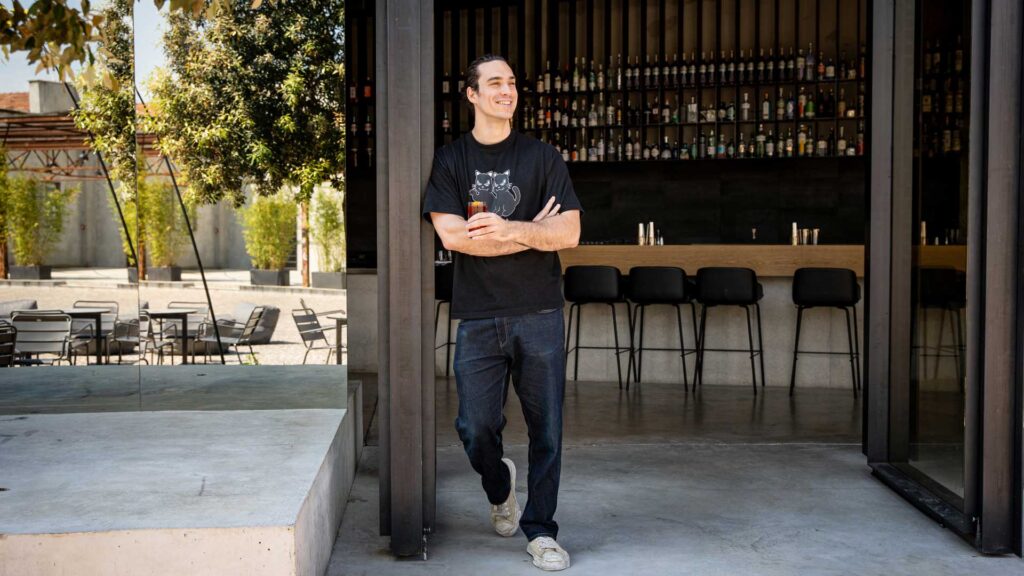
Lubna distils that fascination into a space with a distinct identity. Not a copy of anything, but a deeply personal interpretation. “I’d be more inclined to call it an aesthetic refuge,” says Querci, “where music is a fundamental element, inextricably tied to our sense of hospitality.” Everything is built around sound. Every evening, a different carefully selected DJ takes to the booth. The musical backbone is funk in all its variations, stretching toward jazz or ambient electronics, yet always circling the same rhythmic core. The sound system, custom built for the space, offers warmth, depth, immersion. The people who come reflect this harmony. “Lubna is a particular kind of listening place, where dining and mixology go hand in hand.” It draws a curious crowd — not necessarily audiophiles, but people attuned to detail, to atmosphere, to careful craft.
The Value of Mindful Listening, According to Lorenzo Querci

You don’t need to be an expert in hi-fi. What you need is time. And willingness. “This is a different way of inhabiting a venue: one that restores intention to the centre, where attention matters more than performance”. That mindset comes from Japan. In the 1960s, Jazz Kissa — or jazu kissa — had already been offering rare records and immersive jazz experiences. “That moment in history was driven by a growing passion for jazz and a culture of deep respect for the ritual of listening. That’s why the model took hold. At a listening bar, you don’t talk — you listen. To high-quality sound systems, to curated vinyl collections, in a space that feels almost sacred.” The model later spread to the United States, especially in New York, and then on to Europe — Berlin, London. Lubna draws from that lineage but never imitates it.
Lorenzo Querci, Inspired by the World
“Public Records in New York was a turning point for me — a space that blends listening bar, music venue, and cultural platform with perfect balance. I also found Spiritland in London inspiring: its music curation has almost an editorial feel, and the aesthetic is so considered. Other places that struck me were Bird in Copenhagen, which works by subtraction, and JAM Record Bar in Sydney for its distinctive design.” And in Italy? “The idea of a listening bar here is still young, and more contaminated by other worlds. It often blends with cocktail culture or food, less monastic than the Japanese model, but clearly more open and convivial. Without sacrificing audio quality or musical exploration.”
Lubna, a Place to Slow Down and Listen
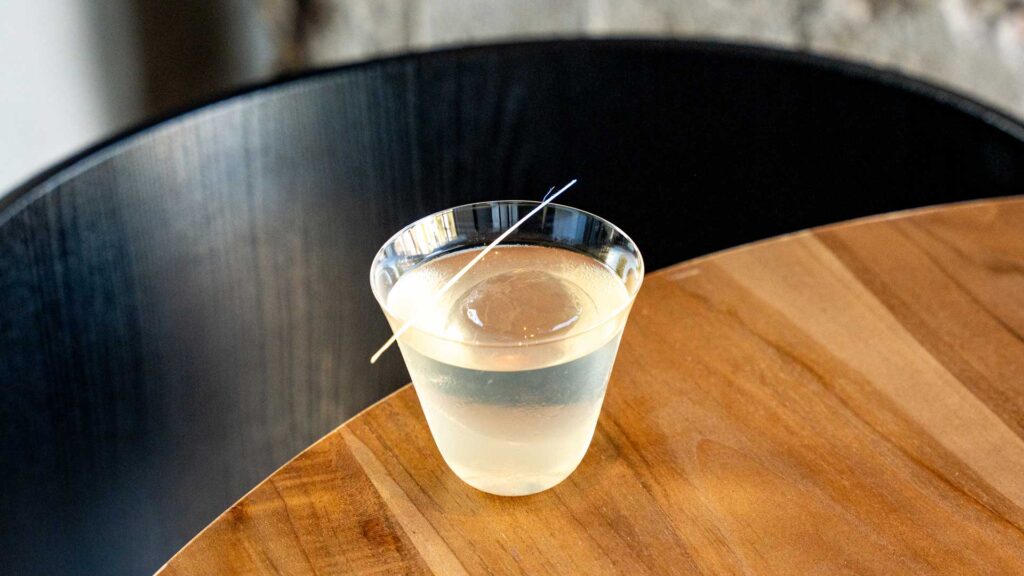
In this evolving landscape, Lubna is charting its own path with clarity. “It offers an alternative to noise. A space to slow down, to listen, to discover. Right now, there’s a hunger for places like this: intimate, refined, built around experience.” The food and drinks follow the same sensitivity. “There’s no direct connection to the music, but there’s a harmony of style and flavour between the cocktails and the food. That balance — between those three elements — is what makes up the Lubna experience.” Every detail contributes to a sensory narrative, without friction or excess. Lubna is a place you enter to stay. And when you leave, something lingers — like the subtle echo of a real pause.
The article first appeared on Coqtail – for fine drinkers. Order your copy here
Photo by Julie Couder x Coqtail – all rights reserved


